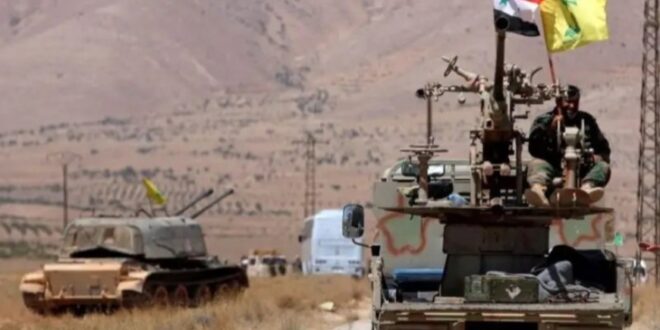Syria TV has learned from security sources that Israel has been coordinating security efforts with the Syrian regime for some time to reduce Iran’s influence.
On November 3rd, Israeli Prime Minister Benjamin Netanyahu outlined Tel Aviv’s objectives for the next phase of its strategy in Lebanon and Syria. These goals include pushing Hezbollah away from the Litani River, either through “agreement or coercion,” and preventing the group from rearming by cutting off its supply lines, particularly those coming from Iran via Syria.
To achieve these aims, Tel Aviv has been employing military and security measures, some of which have been underway on Syrian soil for several months. It is anticipated that Israeli tactics will evolve further, especially with the upcoming arrival of a Republican administration in the White House under President Donald Trump, who is known for his hardline stance against Tehran and its regional allies.
Security coordination with the Syrian regime
Syria TV has learned from security sources that Israel has been coordinating security efforts with the Syrian regime for some time to reduce Iran’s influence in the southern region of Syria. Tel Aviv relies on its contacts with Louay al-Ali, head of the military security branch in Daraa governorate, whose influence also extends to Quneitra. According to the sources, Ali provides Israel with information on the movements of Iranian-linked military groups in southern Syria, enabling Israel to target these groups. Additionally, Tel Aviv uses this intelligence to conduct limited incursions aimed at arresting individuals collaborating with Iran.
The sources further stated that Ali is leveraging his coordination with Israel to strengthen his position in southern Syria. He is positioning himself as a key figure in confronting rival security branches, particularly Air Force Intelligence, and coordinates his actions with the Syrian regime. This coordination benefits the regime, which can demonstrate its responsiveness to Israeli warnings about limiting Iranian influence in Syria.
Recently, sources confirmed that Israel sent a warning to the Syrian regime via Arab intermediaries, signaling that it might escalate its attacks to target Syrian military sites, particularly those that tolerate Iranian-backed factions. The message was clear: the Syrian regime must define its stance on Iranian influence, as its attempts to balance relations with both Israel and Iran are no longer acceptable. Failure to cooperate would make Syrian military sites more vulnerable to intensified Israeli strikes, especially on those used by Hezbollah to store weapons.
Israel is also considering the establishment of a security belt extending from the north of Quneitra—starting from the city of Baath, passing through Khan Arnaba, Jabata al-Khashab, and Hader, to the outskirts of Beit Jinn and the Syrian-controlled section of Mount Hermon in the Damascus countryside. This security zone aims to enhance Israel’s military superiority over Hezbollah, which is based in southern Lebanon, and to monitor arms smuggling routes to the group via the Bekaa Valley.
Such a move would open a new front for Israel against Hezbollah from Syrian territory, restricting the group’s access to critical high-ground positions along the border. According to the same sources, it is also possible that Jordan may take limited action in southern Syria, particularly in the area stretching from the Yarmouk Basin to the Naseeb area, northwest of the Jordanian-Syrian border. The Jordanian military has been increasingly active in this region in recent weeks, which suggests preparations for an unknown development. Amman may be anticipating potential unrest in southern Syria, particularly if Israeli forces move closer to the border.
There are growing regional and international concerns about the possibility of Hezbollah military units stabilizing in southern Syria, or Iranian-backed forces from Afghanistan, Pakistan, and Iraq being deployed in the area to secure the group’s interests.
The broader context of these developments is the ongoing Israeli war on Gaza and southern Lebanon, which is currently in a phase of anticipation. The trajectory of these conflicts will largely depend on the stance of the new US administration and its support for Israel’s goal of weakening Hezbollah by disrupting its operations through Syria.
 Eurasia Press & News
Eurasia Press & News




